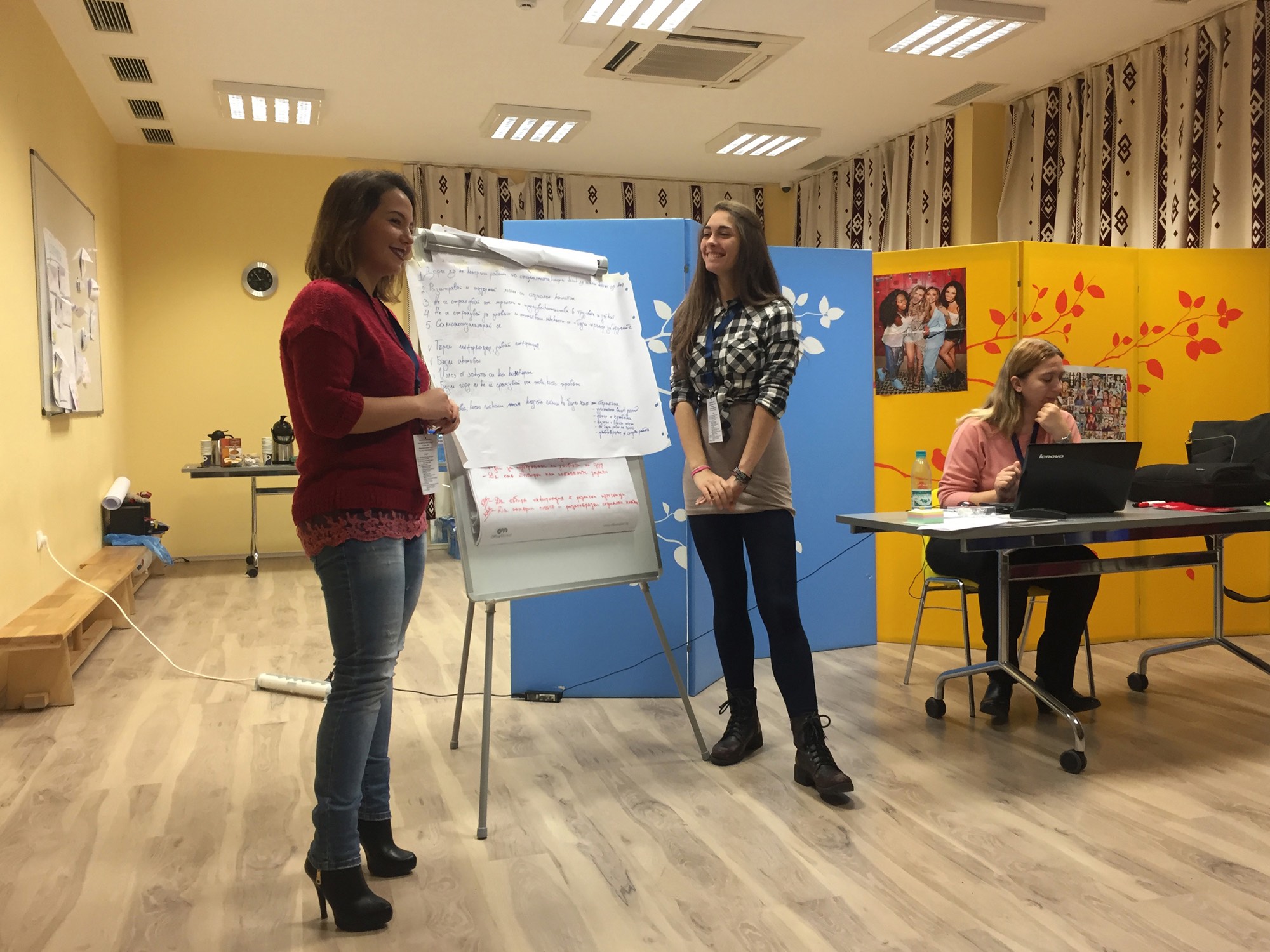Live and work in Bulgaria
What does Bulgaria must change to be a better place to live and work?
On 23rd November 2017, the International Youth Centre of Stara Zagora hosted a regional conference to tackle the question. The event, organized for the sixth year in a row, provided young Europeans a space to exchange viewpoints with policy-makers in several fields of action: education and training, cultural environment and identity, living environment, employment and working conditions.

The conference has been an occasion to point out good practices implemented by now, but also to assess the challenges for the future. Bulgarian youngsters and EVS volunteers in the country gave their contribution by sharing experiences and outlining concrete solutions. The(Y) Volunteers team also joined the debate and took part in some workgroups to discuss two issues in particular: education and employment.
Education and training
Education at secondary and higher levels, as lifelong learning, are among the spheres that have to grow most in Bulgaria. The matter was analyzed deeply in the workgroup moderated by Milena Ilieva, expert from the Thracian University of Stara Zagora, with some interesting highlights.
Beyond doubt, digital technologies are reshaping education in the 21st Century and opening up to new methods of teaching and learning, more entertaining and interactive. Nevertheless, secondary schools of Bulgaria are still far from this horizon. Due to limited financial resources, the overall level of digitalization is low and the need to improve the educational infrastructure is widespread around the country. Besides this lack, the system is also undermined by exiguous creativity and motivation when it comes to think about education or to educate.
Another great weakness is the one that concerns education at the higher levels and the arising question is: how to bring education closer to the job market? Study programs have to combine theoretical with practical subjects and provide students with more opportunities to apply their knowledge. Create a stronger connection between school, university and job market is key to meet the needs of both students and employers.
Last but not least, it is necessary to provide more opportunities for continuous education. The matter is not just about offering a wider range of workshops, seminars or training, but also ensuring their quality through constant monitoring and feedback, as well as guarantee their recognition by institutions and organisms. EU projects and measures designed for the educational sector in Bulgaria are intended to bridge all these gaps for the future and finally put the country on the European map of education.
Employment and working conditions
The debate, led by the psychologist Mincho Nikolov, was focused mostly on work ethic and started from a simple but fundamental idea: “we should work on something close to our hearts. If we find that, we won’t have to ‘work’ throughout all our life.” His advice for younger generations is thus clear: employ themselves in what they really like. Working realization lies in expressing the potential of their creativity and always put all effort possible to develop themselves and succeed in what they want to do. Nowadays, youngsters have to build their future and seek their employment opportunities proactively. Sit and wait for these to appear is not realistic: purpose, direction, and motivation are essential to reach the goal.
Nikolov also underlined that working deserves the best attitude: “when you choose a job you are also responsible for ensuring a positive work environment”, which brings good feelings, better communication, stronger teamwork spirit and more creative ideas.
Finally, he shared some general must-do to bear in mind: “be seekers and think out of the box”, “look for realization constantly and never stop learning”, “face challenges and push yourself out of your comfort zone”, “listen actively and ask without fears”, “inform yourself through different sources, it will help you to pursue your aims and to create connections”, “maintain social contact to compare yourself with other people and make your decisions more consciously”, “be proud of what you have done and you are doing”.
Bulgaria can be a better place to live and work, but the challenge depends on a common will to change the status quo. Policy-makers have to take into account the voice of young people and ensure they participate in the creation and implementation of initiatives and processes. Younger generations are the cultural legacy of Bulgaria and also its future. The precious resource to shape a better country which nowadays is not as good as it could be.







